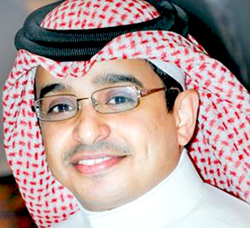Riyadh, Mar 19: The whole world must understand that Saudi Arabia will never succumb to any pressure to change the way its judiciary and other organs of state function.
This is because Islamic law underpins all these separate and autonomous bodies and entities. The judicial system is independent of the country’s executive, which means there is no interference in the decision of judges.
 In the words of Custodian of the Two Holy Mosques King Salman, “Saudi foreign policy is committed to the teachings of our religion, which call for love and peace.” He said the Kingdom would “continue to comply with international treaties, conventions and covenants, respect the principle of sovereignty, reject any attempt to interfere in its internal affairs, and continue to defend Arab and Islamic issues.”
In the words of Custodian of the Two Holy Mosques King Salman, “Saudi foreign policy is committed to the teachings of our religion, which call for love and peace.” He said the Kingdom would “continue to comply with international treaties, conventions and covenants, respect the principle of sovereignty, reject any attempt to interfere in its internal affairs, and continue to defend Arab and Islamic issues.”
The Swedish Foreign Minister Margot Wallstrom’s recent criticism of a Saudi court ruling stands in sharp contrast to Sweden’s virtual silence on the daily crimes committed by the Assad regime against the Syrian people, and the Israeli practices against the Palestinian people.
Wallstrom has created a political crisis for her country, not only with Saudi Arabia, but also other Arab states, who have denounced her statements. Many have argued that she lacks basic diplomatic skills.
An important question must be posed: Why has she not declared her opposition to remarks ridiculing our Prophet, peace be upon him, and Islam, which have hurt the feelings of more than a billion Muslims. Why have we not heard about a Swedish law that punishes those who insult our Prophet (pbuh)?
The Council of Ministers has confirmed that the principles of Islam are not negotiable. These very same principles are the foundation of the Saudi judicial system, which strives to protect people and ensure stability in society.
Wallstrom’s comments can also cause considerable economic fallout for Sweden because Saudi Arabia is the country’s fourth-largest export market outside the European Union, and contributes billions of dollars to its economy. A strong Saudi response on the economic front would have considerable impact on Sweden.
Wallstrom is also wrong about developments in terms of women empowerment in Saudi Arabia. The Kingdom has rejected any marginalization of women in this country, who are now participating in many areas including on the Shoura Council, and later this year as equals on municipal councils.
King Salman believes in the right of women to have the best education and employment opportunities. They now have an equal share of scholarships and training, while adhering to the fundamentals of our religion and values. In this regard, Saudi Arabia does not need lecturing from the Swedish minister.
The Council of Ministers has condemned the insulting remarks of the Swedish minister, which it said totally disregards the massive progress made on all levels. This includes the country’s judiciary, which strives to protect the rights of everyone.
The Cabinet also called on the international community to respect other countries’ religions, cultures and social values. It said that this must include the principles of Islam, which are sacrosanct and non-negotiable for Muslims worldwide. It said that religious differences should not be used to advance political agendas.
While the Kingdom regrets such unfriendly and undiplomatic statements, there is every hope that this matter is not escalated. If this happens, it could force this country to review the feasibility of its relationship with Sweden.





Comments
Add new comment